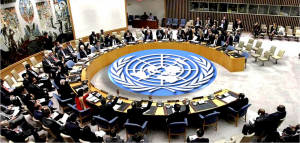By Timothy Sibasi, timothy.sibasi@alleastafrica.com
KAMPALA – The UN Security Council has failed to impose an arms embargo on South Sudan and couldn’t agree to impose additional individual sanctions on two South Sudanese implicated in serious human rights abuses. These repeated failures on the international stage have contributed to the atmosphere of impunity enjoyed at home by South Sudanese leaders on both sides, and seems to have emboldened their stance.
This dilemma falls on the heels of the formation of 53 more new rebel groups in South Sudan, this means that Dr. RiekMacharwho is now under House arrest in South Africa is still ostensibly in charge of his rebel army, but it’s impossible to maintain control in the absence of regular communication. And without control, the rebel movement is never a wholly unified force anymore but is fracturing into ever smaller groups. According to one study by the Institute of Security Studies.
The impact of the violence and persistent abuses against the civilian population is devastating. This has accounted for acute food insecurity which is now widespread. Six million South Sudanese, almost half the country’s population, face severe food shortages. The outflow of refugees continues at an alarming rate, uprooting entire communities and effectively emptying swathes of land, and 1.9 million civilians remain internally displaced, with some sheltering on UN bases. The crisis is costing the international community billions of dollars.

Dr. Arthur Benomugisha is an expert on Peace and Conflict Resolution from Makerere University say, “Rather than allow this situation to fester, international and especially regional actors should take all means necessary to stop violations against the civilian population and provide meaningful accountability. These include enacting and implementing an arms embargo, additional individual sanctions, and accelerating the deployment of the UN Regional Protection Force, authorized by the UNSC in August 2016 to bolster the mission’s protection capacity.”
The AU Commission, however, is held between a hard rock and hard surface to move ahead with establishing the Hybrid Court for South Sudan.
While positive engagement with the government of South Sudan is helpful, Nicholas Opio, a renowned scholar of International law, says “the AU Commission has the authority to establish the court with or without the engagement of the government and should proceed on that basis if necessary. If a credible, fair and independent hybrid court does not progress, the option of the International Criminal Court (ICC) remains and should be pursued. As South Sudan is not a party to the court, the UN Security Council would need to refer the situation to the ICC in the absence of a request from the government of South Sudan.”
Based on cumulative evidence from reporting since December 2013, investigations into those responsible for committing war crimes and crimes against humanity are forethought to include investigations into the potential criminal responsibility of President Kiir, rebel leader RiekMachar and their respective top military commanders. All those against whom there is credible evidence of criminal responsibility should be charged and prosecuted in accordance with international fair trial standards.
Copyright ©2017 Alleastafrica.com All rights reserved. The information contained in Alleastafrica.com may not be published, broadcast, rewritten, or redistributed without the prior written authority of Alleastafrica.com



